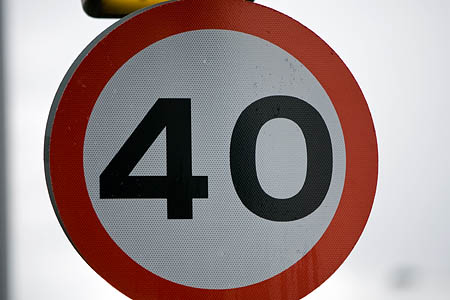Campaigners have told the coalition Government there should be a maximum speed limit of 40mph on all unfenced roads crossing common land.
The Open Spaces Society said a lower speed limit is preferable to putting up fences where grazing animals on commons.
The society, the oldest British national conservation charity, was responding to a Department for Transport consultation on speed limits.
It said the DfT favours a speed limit of 40mph for roads ‘with a predominantly local, access or recreational function’ and the society considers that unfenced roads across common land should be included.
OSS general secretary Kate Ashbrook said: “Commons are important for their landscape qualities, history, archaeology, wildlife and opportunities for quiet recreation, on foot and horseback.
“But too many are now crossed by busy roads with speeding traffic.
“In order to reintroduce grazing animals to benefit the biodiversity, habitat and public access, owners and managers feel they must erect fencing against the roads to protect the stock, and the motorists, from collisions.
“But it is far preferable to slow the traffic than to fence the common. Fencing is an eyesore, enclosing a historically open landscape. It is a physical and psychological barrier to public access. People should be able to wander onto the common from any point along the road; even if gates and stiles are provided, the fence is still a severe barrier to access.”
Ms Ashbrook said commons are traditionally open and unenclosed. “Many were stolen during the inclosure movement of the 18th and 19th centuries,” she added, “and those that remain are incredibly precious.
“With a universal speed limit, motorists would know that if they entered a common it was a special place, whose life and traditions should be respected.
“Of course the police would need to enforce the speed limit, but if there were a few high-profile prosecutions the message would get through.
“There is a 40mph speed limit on the unfenced roads across the Dartmoor national park, and it certainly helps to reduce accidents involving livestock. Recently on Litcham Common in Norfolk, cattle grids were installed with signs urging drivers to slow down, the roadside fencing was removed and the land is open once more.
“It would make all the difference if the Department of Transport would take up our proposal and introduce a 40mph speed limit on our magnificent commons.”
Common land dates back before medieval times and is land over which others have rights associated with their properties, to graze animals, collect wood or dig peat for instance.
Traditionally these rights were vital to people’s existence, but many have now fallen into disuse. All commons have an owner and there is a public right to walk over all of them and on some a right to ride horses.
There are 1,544 sq miles of commons in England in 7,062 separate units. 80 per cent of all common land is nationally or internationally designated for its landscape, habitat or archaeology.
